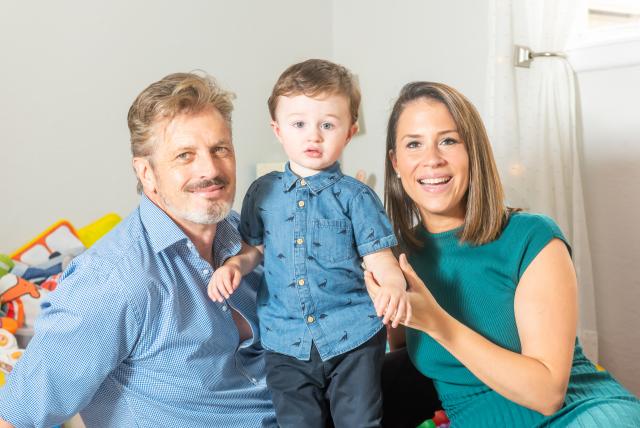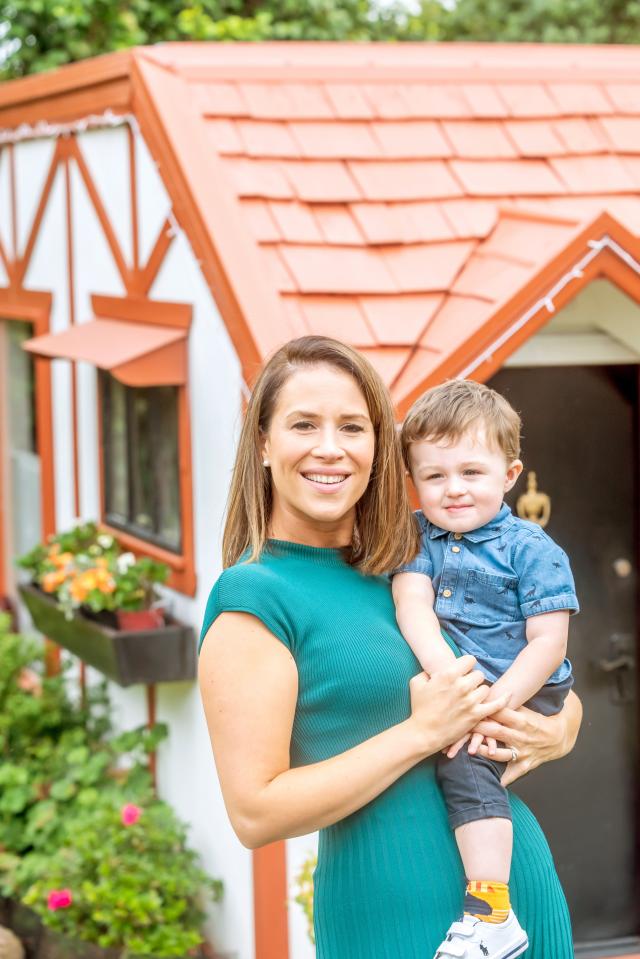By Melissa Meehan
When you first thing of a celebrant – a wedding is what probably first springs to mind.
But for mum and celebrant Sophie Cooper – it’s a chance to engage with families starting their lives together, bidding farewell to loved ones or celebrating new life.
Her favourite? A baby naming ceremony.
“Welcoming a baby or child into a family, is something special. It’s tangibly heartwarming, feeling the love surrounding a brand-new addition to a family,” Ms Cooper told Kids Today.
It’s even more special because of her special bond with 18-month-old son James.
She’s noticed how Covid-19 restrictions have influenced the socialisation of babies and toddlers – even her own.
When restricitons eased, Ms Cooper said she noticed her son getting upset if a fmaily member approached him or even made eye contact.
“I’ve spoken to many other mothers about the effects COVID restrictions have had on their growing children, and I hear the same story,” she said.
“That their children are finding it difficult in social situations, getting used to the presence of others and making friends, as they’ve been in an enclosed household bubble of just a few people for so long,” she said.
Having a naming ceremony can be a gentle way of easing a child into a social situation, as you call the shots.
It can be a quiet private ceremony, dressed up (or down) with the child’s favourite things.
“Some family members may not have had a chance to meet the newest edition to the family, so this can be a great excuse to gather the family together,” she said.
“We all need that family connection, and especially after the last two years, I think it has really highlighted how important family is to us and to our growing children.”
*What are naming ceremonies?*
A naming ceremony is an official way of welcoming a baby or child into the family circle.
Naming ceremonies usually take place, a few days, months or even years after the birth of a child.
It recognises the child’s arrival and addition to the family.
Traditionally parents and extended family have chosen to celebrate a naming ceremony on the child’s first birthday.
*Who writes the ceremony?*
The naming ceremony is written by the celebrant and tailored to the family’s requests.
The celebrant will write about the child and their personality, the hopes, and dreams of the parents for their child, and the promises they, and supporting adults will make to their
child.
The celebrant will also talk about the meaning behind the name chosen and why the parents decided to call them their name.
*What is involved in a baby naming ceremony?*
Welcome
The Celebrant will say a few words about the arrival of the child, how happy they are and
welcome their guests.
Talk about the child
The celebrant will then talk about the child, their emerging personality, likes and dislikes,
favourite activities, hopes and dreams the parents have for them and how much they
mean to the family.
Reading or Poem
A reading or a poem, can be offered by an older sibling, family member or close friend.
For example, ‘Oh the places you’ll go’ by Dr. Seuss.
www.sophisticated-ceremonies.com
Ceremony/Ritual
The family may choose the addition of a ritual, for example, they might choose to have a
memory box, to which all guests can contribute by placing gifts or writing personal notes
consisting of reflections and fondest memories of the child. The box is sealed, safely stored,
and then opened on the child’s 18th or 21st birthday.
A wishing tree is also popular, where guests are asked to write a ‘wish’ for the baby/child
and put on the tree as a keepsake.
Guide Parent Promises
Guide parents will then pledge promises to the child, for example,
‘I promise to be a good role model, to help guide you through life, to treat you with
kindness and respect, and pledge to help shape you into a good member of society’.
A guide parent can be a family member (Grandparent or sibling) or close friends of the
parents, very similar to ‘God Parents’ (without making promises in front of God).
The Official Naming
This is the part, where the baby or child’s name is officially given to them. The celebrant
will address why the parents chose their name and the meaning behind it.
Final Declarations
This is where the celebrant will talk about the future of the child and what their parents
want for them, which is usually for them to be happy, safe, and well.
Presentation of the Naming Certificate
The celebrant will present the child and family with an official certificate as a keepsake of
the day. A celebrant may also present the child with a gift, one that has meaning behind
it, for example a plant or tree that will grow with the child.









